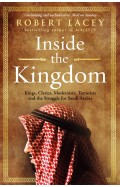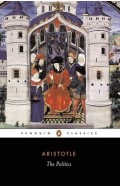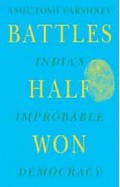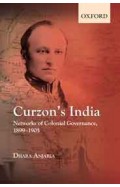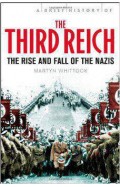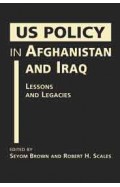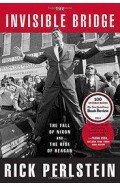Plato as Critical Theorist
By: Jonny Thakkar
-
Rs 5,095.75
- Rs 5,995.00
- 15%
You save Rs 899.25.
Due to constant currency fluctuation, prices are subject to change with or without notice.
What is the best possible society? How would its rulers govern and its citizens behave? Such questions are sometimes dismissed as distractions from genuine political problems, but in an era when political idealism seems a relic of the past, says Jonny Thakkar, they are more urgent than ever. A daring experiment in using ancient philosophy to breathe life into our political present, Plato as Critical Theorist takes seriously one of Plato’s central claims: that philosophers should rule. What many accounts miss is the intimate connection between Plato’s politics and his metaphysics, Thakkar argues. Philosophy is the activity of articulating how parts and wholes best fit together, while ruling is the activity that shapes the parts of society into a coherent whole conducive to the good life. Plato’s ideal society is thus one in which ideal theory itself plays a leading role.
Today’s liberal democracies require not philosopher-kings legislating from above but philosopher-citizens willing to work toward a vision of the best society in their daily lives. Against the claim that such idealism is inherently illiberal, Thakkar shows that it is fully compatible with the liberal theories of both Popper and Rawls while nevertheless pushing beyond them in providing a new vantage point for the Marxian critique of capitalism.
What is the best possible society? How would its rulers govern and its citizens behave? Such questions are sometimes dismissed as distractions from genuine political problems, but in an era when political idealism seems a relic of the past, says Jonny Thakkar, they are more urgent than ever. A daring experiment in using ancient philosophy to breathe life into our political present, Plato as Critical Theorist takes seriously one of Plato’s central claims: that philosophers should rule. What many accounts miss is the intimate connection between Plato’s politics and his metaphysics, Thakkar argues. Philosophy is the activity of articulating how parts and wholes best fit together, while ruling is the activity that shapes the parts of society into a coherent whole conducive to the good life. Plato’s ideal society is thus one in which ideal theory itself plays a leading role.
Today’s liberal democracies require not philosopher-kings legislating from above but philosopher-citizens willing to work toward a vision of the best society in their daily lives. Against the claim that such idealism is inherently illiberal, Thakkar shows that it is fully compatible with the liberal theories of both Popper and Rawls while nevertheless pushing beyond them in providing a new vantage point for the Marxian critique of capitalism.
Zubin Mehta: A Musical Journey (An Authorized Biography)
By: VOID - Bakhtiar K. Dadabhoy
Rs 892.50 Rs 1,050.00 Ex Tax :Rs 892.50
The End Of Alchemy: Money, Banking And The Future Of The Global Economy
By: Mervyn King
Rs 1,147.50 Rs 2,295.00 Ex Tax :Rs 1,147.50
The Origins of Political Order From Prehuman Times to the French RevolutioN
By: Francis Fukuyama
Rs 4,045.50 Rs 4,495.00 Ex Tax :Rs 4,045.50
Battles Half Won : Indias Improbable Democracy
By: Ashutosh Varshney
Rs 3,565.75 Rs 4,195.00 Ex Tax :Rs 3,565.75
Curzon's India: Networks of Colonial Governance, 1899-1905
By: Dhara Anjaria
Rs 845.75 Rs 995.00 Ex Tax :Rs 845.75
A Brief History of The Third Reich: The Rise and Fall of the Nazis - Paperback
By: Martyn Whittock
Rs 1,695.75 Rs 1,995.00 Ex Tax :Rs 1,695.75
US Policy in Afghanistan and Iraq
By: Seyom Brown & Robert H. Scales
Rs 2,375.75 Rs 2,795.00 Ex Tax :Rs 2,375.75
The Peacemakers: India and the Quest for One World
By: Manu Bhagwan
Rs 722.50 Rs 850.00 Ex Tax :Rs 722.50
The Invisible Bridge: The Fall of Nixon and the Rise of Reagan
By: Rick Perlstein
Rs 1,827.50 Rs 2,150.00 Ex Tax :Rs 1,827.50
The End Of Alchemy: Money, Banking And The Future Of The Global Economy
By: Mervyn King
Rs 1,147.50 Rs 2,295.00 Ex Tax :Rs 1,147.50
No recently viewed books available at the moment.
Zubin Mehta: A Musical Journey (An Authorized Biography)
By: VOID - Bakhtiar K. Dadabhoy
Rs 892.50 Rs 1,050.00 Ex Tax :Rs 892.50
The End Of Alchemy: Money, Banking And The Future Of The Global Economy
By: Mervyn King
Rs 1,147.50 Rs 2,295.00 Ex Tax :Rs 1,147.50












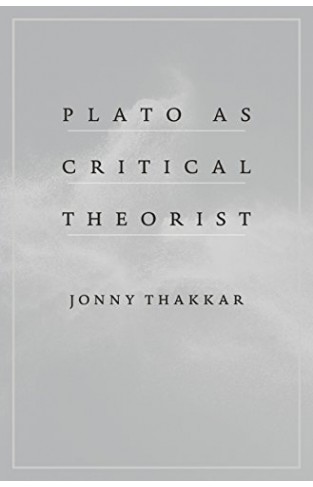
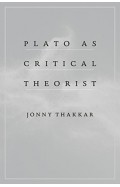
-120x187.jpg?q6)





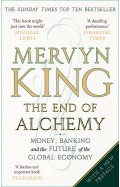
-120x187.jpg?q6)
